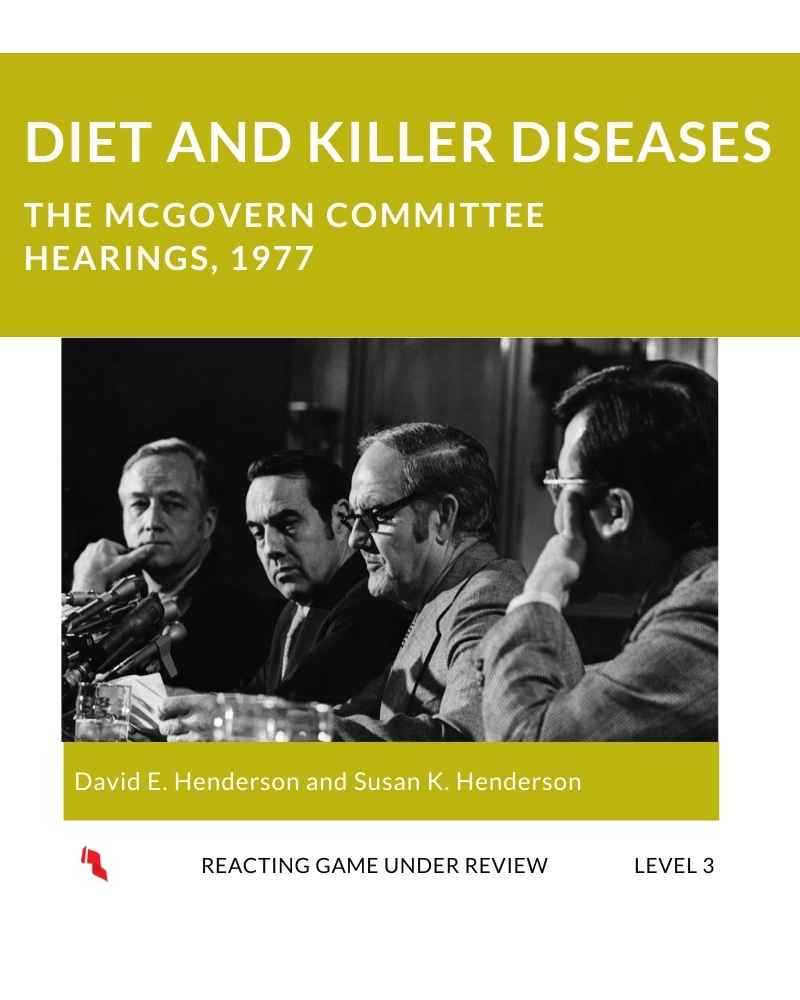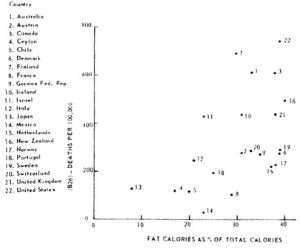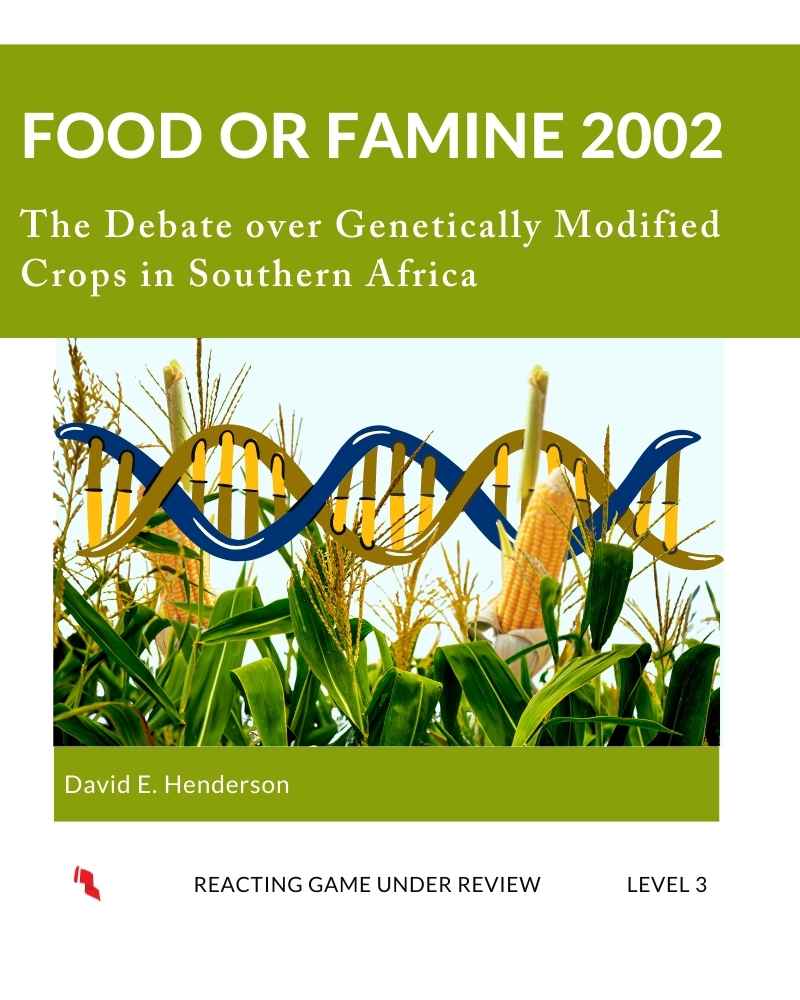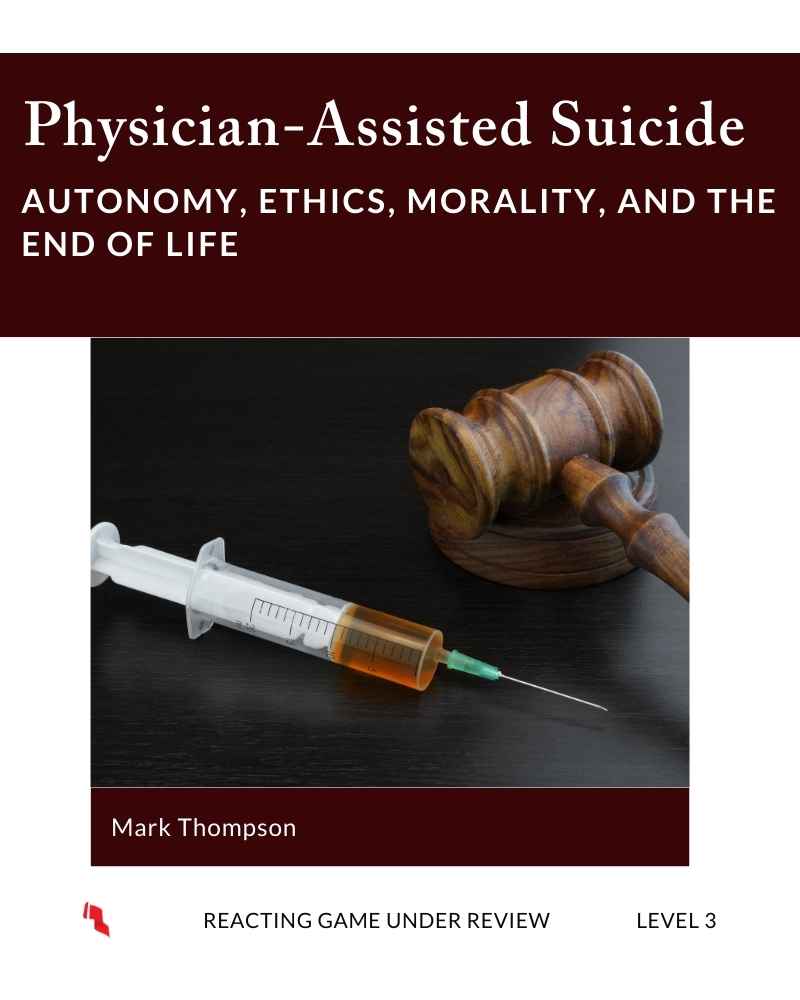 |
DIET AND KILLER DISEASES
Diet and Killer Diseases: The McGovern Committee Hearings, 1977
by David E. Henderson & Susan K. Henderson

Play this game recently? | Does fat cause heart disease? This is a Level 3 game that is still under development but has been approved by the Reacting Editorial Board (REB) for general use. A detailed explanation of the editorial process and game levels can be found on our REB Page. |
Details
|
Notable Roles |
Using the Game
Class Size and Scalability
Note
|
Read more about pairing this game...
When pairing this game with Challenging the Food Pyramid, experience suggests it is better to play the Food Pyramid game first since it presumes the results of the McGovern hearings, meaning you would play these two games in reverse chronological order. Doing so (playing Diet and the Killer Diseases second) allows students to examine their assumptions from Challenging the Food Pyramid. If played chronologically, students will tend to skew the results in the Food Pyramid game in an ahistorical manner.
If your class focuses on government process and congressional hearings, one might also consider pairing this game with Radio Days.
Additional guidance can be found in the Instructor's Guide, and questions can be directed to the game authors.
Reviews |
"This game is important for science majors and non-majors alike. It helps students see the importance of both the scientific relationships between data are presented (and how tempting and compelling correlative relationships can be), and how human relationships affect how the data gets presented." | "My students thoroughly enjoyed this game, even the ones who were skeptical. It fit easily into my class schedule, and it was easy to adapt for online use, which was nice. Best of all: the game authors made videos for set-up." | "Students tend to view 'Science' as monolithic, especially as idioms like 'Follow The Science' enter public discourse. I want my students to understand how different interests frame popular understanding of health, diet, and nutrition. This game offers an opportunity for just that." |
Reacting Consortium members can download all game materials. You'll be asked to sign in before downloading. If you are adopting this game for your class, fill out this permissions form. These materials were last updated in January 2020 (version 4.5).
Please Fill out the Permissions Request Form Before Using Diet and Killer Diseases in Your Class!
Gamebook All students need a Gamebook, which includes historical context, and summaries of essential scientific articles. Members can provide the Gamebook to students for free or at cost. Updated June 2023,.docx file. | Role Sheets and Placards Students also need a Role Sheet, which contains biographical information, role-specific resources or assignments, and their character's secret victory objectives. The name placards are helpful for in person play. Updated June 2023, .docx files. | Instructor's Manual and Handouts The Instructor's Guide includes guidance for assigning roles, presenting historical context, assignments, activities and discussion topics, and more. Updated June 2023 .docx file. |
Additional Resources
Full scientific articles Resources for Introduction and/or Debrief |  |
If you have materials you would like to add to this website to be shared with other Reacting Instructors, please email us at reacting@barnard.edu.
Development for this game was made possible through funding from the National Science Foundation.
David E. Henderson David Henderson is Professor Emeritus of Chemistry at Trinity College. He was one of the original users of the Reacting pedagogy, and is co-author of four published Reacting games, and many games under review.
Susan K. Henderson
Susan Henderson was a Professor of Chemistry at Quinnipiac University, where she taught general chemistry, analytical chemistry and nutrition for non-science majors for over 35 years. She is co-author of three published games, and multiple games under review. | Reacting and Related Titles
|
Members can contact game authors directly if they have questions about using the game. We also invite instructors join our Facebook Faculty Lounge, where you'll find a wonderful community eager to help and answer questions.
|
|
|





